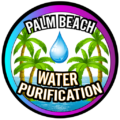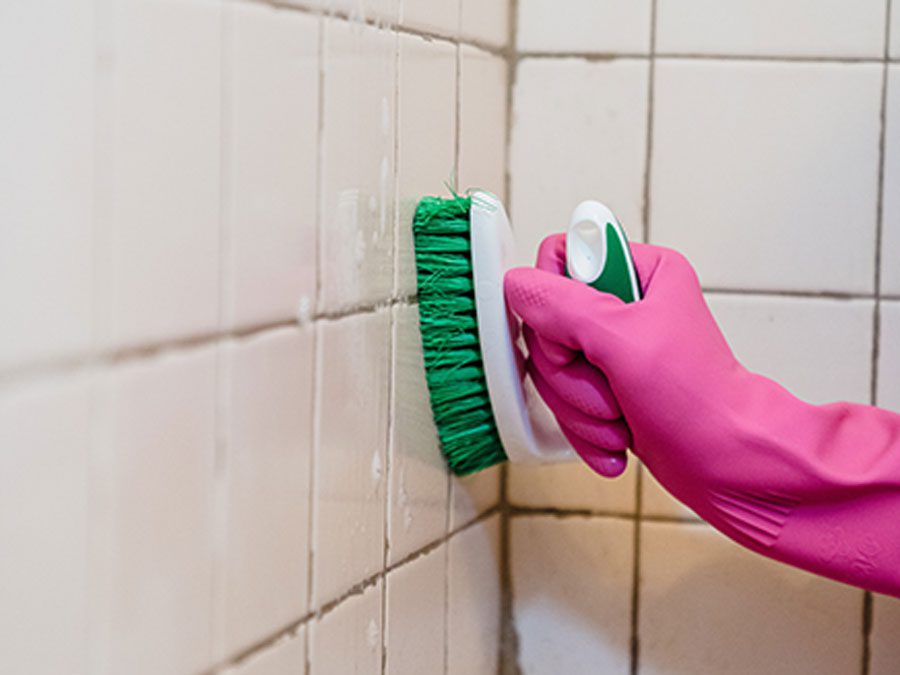The average family in the United States uses more than 300 gallons of water each day. If your family is anything like the rest of America, then you probably use more than a few gallons of clean water every day.
And in the majority of homes, the biggest expense associated with using clean water is its cost. Even more so if you live in a hard water area.
The challenge with hard water is that it attaches itself to soaps, detergents, and other cleaning products resulting in a ‘soap scum’ feeling on your skin. Additionally, hard water is problematic when it comes to washing clothes because the minerals tend to cling to the fabrics, leaving them feeling rough.
One way that you can eliminate this issue is by investing in a water softener. Should your home have one of these devices?
Keep reading to understand your options and to know if it’s time to install a water softener into your home.
What Is Hard Water?
What is hard water? It is a water supply that has absorbed different minerals from the earth, including calcium and magnesium.
Some areas have naturally “soft” water, which is water without a large concentration of these minerals. Others experience a much higher concentration of minerals in their water.
When these minerals are in your water supply, it may make your skin feel slimy when you take a shower or after you wash your hands. You may also notice that the water leaves behind spots on your dishes or tile once it dries.
While hard water residue is not dangerous, it can be unsightly and cause other issues in your home.
What Is a Water Softener?
A water softener is a device used to remove the minerals from hard water. It acts as a filter to remove excess minerals from your water supply and prevent limescale buildup.
Water softeners are systems that are added to your existing plumbing and will treat your water before it comes out of the tap.
There are many different types of water softeners that will treat your water supply in different ways. While different types of water softeners differ in price, they can be an investment for your home and can save you money in the long run.
Problems Caused by Hard Water
As was mentioned before, hard water is not necessarily dangerous. In fact, having small amounts of these minerals in your water is necessary for your health.
Still, it can be quite inconvenient and may cause other problems in your home.
First, these minerals may start to build up in your home if the levels are too high. For example, your pipes, plumbing, and even some appliances that use water may not function properly if the mineral scale buildup is too high.
In some appliances, the mineral buildup can even shorten their lifespan.
Hard water can also make it more difficult for your soap to work. When you are taking a shower or washing your hands, it makes it more difficult for your soap to lather. Similarly, it can make it difficult to clean your dishes thoroughly.
Instead, the minerals and soap will combine to form soap scum.
How to Tell if Your Home Needs a Water Softener
There are many telltale signs that you have hard water and that your home needs a water softener. Some of these are visible, but others may be more difficult to spot.
Still, water softeners are not necessary for every home. Typically, it is only necessary if you have a high hardness level in your water. Plus, some utility companies may already treat your water.
Here are some of the top ways to tell if your home needs a water softener.
Visible Limescale
One of the easiest ways to tell that you need a home water softener is if you notice scale buildup around your home. If you have mineral scale on your appliances and other water sources, it is likely that you have even more buildup in your pipes.
If you notice a white, chalky substance on your coffee pots, sink taps, or other appliances, you may need a water softener.
Stains From Mineral Residue
Another visible sign of hard water is stains from the mineral residue. These can be commonly found in your bathtub, in your sink, and even on your dishware.
After one of these surfaces gets wet, the water will evaporate. Because the minerals cannot evaporate, they will be left behind in deposits. If you notice that your glasses have filmy spots over the top, these are stains left behind from hard water.
Higher Water Bills
High water bills can be caused by hard water. This is because the pipes in your home may be impacted by a buildup of limescale. Too much hard water can cause blockages in your pipes, which means they have to work much harder to allow the water to pass through.
You can test your water to determine how hard it is and how you can make it softer. Installing a home water softener can lower your water bills and protect your plumbing system from damage. This means it can also lower your maintenance costs and repair costs.
Dull Clothes and Laundry
If you have hard water, you may notice that your clothes and other laundry look dull and feel scratchy after you wash them. This is because the minerals in the water make it difficult for your water to mix with the laundry detergent.
When the detergent isn’t able to lather, it will leave behind soap scum and mineral deposits on your clothing and other items in the wash. This will also make it easier for dirt and other grime to build up on your clothes more quickly.
Installing a water softener will result in clothes that are softer and more vibrant!
Test Your Water
Finally, you can determine whether or not your home needs a water softener by testing your water! As was mentioned before, you only need a water softener if you have a high concentration of minerals in your water.
You also don’t need to treat your water if your utility company already does this for you.
To be completely sure if you need a water softener, you can buy a hard water testing kit. Some companies will even provide free water testing for your home! This will help you determine how high the mineral level is in your water supply.
Types of Water Softeners
There are many different types of water softeners that you can choose from.
The most common type of water softener is an ion exchange water softener. Essentially, it uses salt to remove calcium and magnesium ions and will replace them with sodium irons.
It uses a tank of salt pellets to remove hard water, which can prevent the damaging effects of the other minerals.
Another common type of water softener is a salt-free water softener. Because it doesn’t use sodium like an ion exchange water softener, it requires a mechanical filter to remove the calcium. However, this doesn’t remove magnesium from your water.
Finally, you can use a reverse osmosis water softener. These devices have a semipermeable membrane which allows them to remove many types of water impurities, not just hard water.
The Benefits of Having a Water Softener
There are many benefits of installing a water softener in your home!
One of the top benefits is that it will reduce the buildup of minerals and limescale on your plumbing fixture, appliances, clothes, and even your dishes. This will extend the life of all your appliances that use water!
Next, having soft water will provide you with healthier skin and hair. This is because water with a high mineral content can dry out your skin. When you remove these minerals, you will find that your skin and hair are softer.
Because hard water makes it more difficult for soap to lather, people with hard water often use more soap and detergent than those with soft water. When you install a water softener in your home, you can reduce the amount of soap and detergent you use!
This is also better for the environment!
Finally, having a water softener can make your water taste better. Many homeowners find that water with too much magnesium or calcium leaves an unpleasant taste in their mouths.
When you use a water softener, it removes these minerals and others, like iron and sulfur, to improve the taste of your water.
Learn More About Installing a Water Softener
While it’s not always necessary, installing a water softener in your home provides many benefits and is a great investment for many homeowners. By learning more about hard water, you can determine whether or not you need a water softener in your home.
Do you need help choosing the right water softener for your home? Palm Beach Water Purification can help! We provide water softeners and filters for homeowners and can help you choose the right product.
Contact us today to learn more about water softening and to get a free water test!

